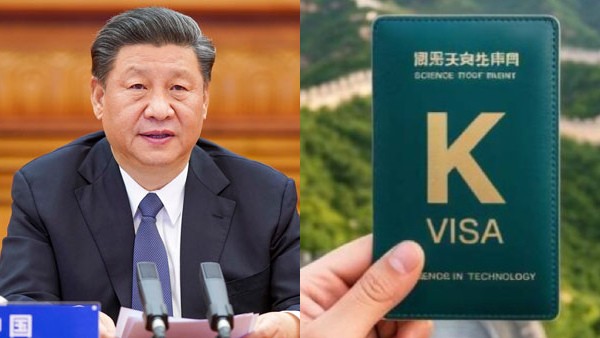
As the United States imposes a steep $100,000 fee on new H-1B visa applications, China has unveiled a strategic countermeasure: the K Visa, designed to attract global STEM talent. Effective October 1, this new visa category is being hailed as China’s answer to the H-1B, with streamlined rules and broader eligibility.
The timing is no coincidence. With President Donald Trump citing “abuse” and “national security threats” as reasons for the H-1B crackdown, China’s move is seen as a direct pitch to young professionals disillusioned by rising barriers in the West.
What Is the K Visa?
The K Visa is open to:
- Foreign nationals under 40
- Graduates with a bachelor’s degree or higher in Science, Technology, Engineering, or Mathematics (STEM)
- Individuals engaged in teaching or research in STEM fields
Unlike traditional work visas, the K Visa:
- Does not require employer sponsorship
- Allows multiple entries and long-term stays
- Permits participation in academic, cultural, and entrepreneurial activities
What It Means for India
India accounts for over 70% of H-1B approvals, making Trump’s fee hike a direct hit to Indian tech workers and IT firms. The K Visa offers a potential alternative, especially for:
- Young engineers and researchers
- Academics seeking global collaboration
- Professionals priced out of the U.S. visa system
China’s relaxed visa norms—like 240-hour visa-free transit and reciprocal agreements with 75 countries—have already led to a 30% rise in foreign arrivals.
The Trade-Offs
| Factor | H-1B (USA) | K Visa (China) |
| Fee | $100,000 (new applications) | Standard processing fees |
| Sponsorship | Mandatory employer sponsor | Not required |
| Eligibility | STEM professionals | STEM professionals under 40 |
| Activities Allowed | Employment only | Work, research, culture, business |
| Visa Duration | 3 years (renewable) | Long-term, multi-entry |
Strategic Implications
China’s K Visa is more than a policy—it’s a signal. As the U.S. tightens its borders, China is opening its doors to global talent. Whether Indian professionals will pivot east depends on factors like:
- Career prestige
- Data and IP concerns
- Cultural adaptability
But one thing is clear: the global visa race is no longer one-sided.
